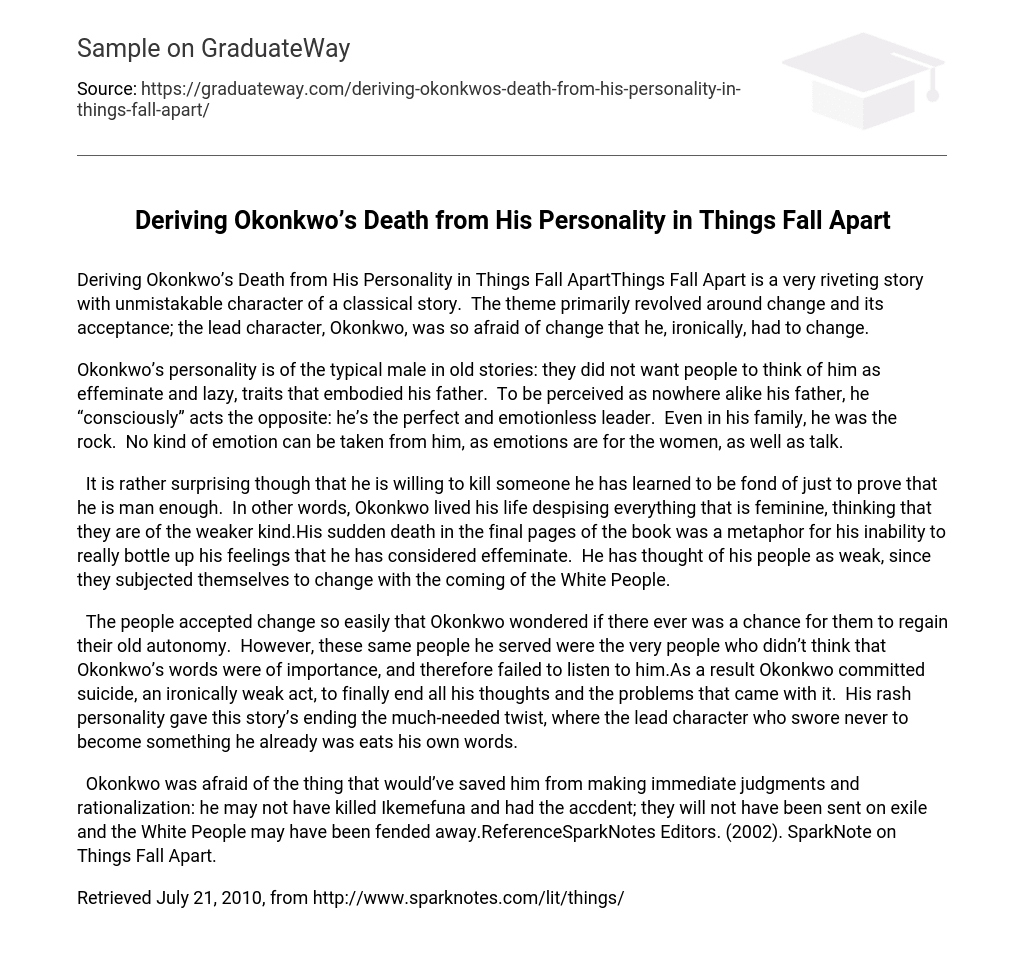Things Fall Apart is a very riveting story with unmistakable character of a classical story. The theme primarily revolved around change and its acceptance; the lead character, Okonkwo, was so afraid of change that he, ironically, had to change.
Okonkwo’s personality is of the typical male in old stories: they did not want people to think of him as effeminate and lazy, traits that embodied his father. To be perceived as nowhere alike his father, he “consciously” acts the opposite: he’s the perfect and emotionless leader. Even in his family, he was the rock. No kind of emotion can be taken from him, as emotions are for the women, as well as talk.
It is rather surprising though that he is willing to kill someone he has learned to be fond of just to prove that he is man enough. In other words, Okonkwo lived his life despising everything that is feminine, thinking that they are of the weaker kind.His sudden death in the final pages of the book was a metaphor for his inability to really bottle up his feelings that he has considered effeminate. He has thought of his people as weak, since they subjected themselves to change with the coming of the White People.
The people accepted change so easily that Okonkwo wondered if there ever was a chance for them to regain their old autonomy. However, these same people he served were the very people who didn’t think that Okonkwo’s words were of importance, and therefore failed to listen to him.As a result Okonkwo committed suicide, an ironically weak act, to finally end all his thoughts and the problems that came with it. His rash personality gave this story’s ending the much-needed twist, where the lead character who swore never to become something he already was eats his own words.
Okonkwo was afraid of the thing that would’ve saved him from making immediate judgments and rationalization: he may not have killed Ikemefuna and had the accdent; they will not have been sent on exile and the White People may have been fended away.
Reference
- SparkNotes Editors. (2002). SparkNote on Things Fall Apart. Retrieved July 21, 2010, from http://www.sparknotes.com/lit/things/





